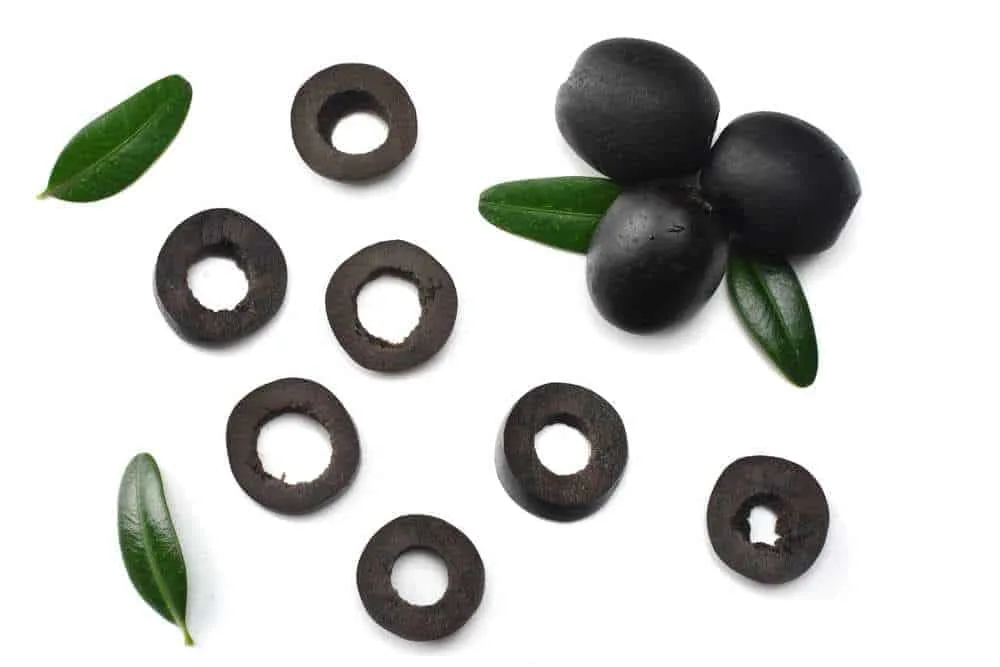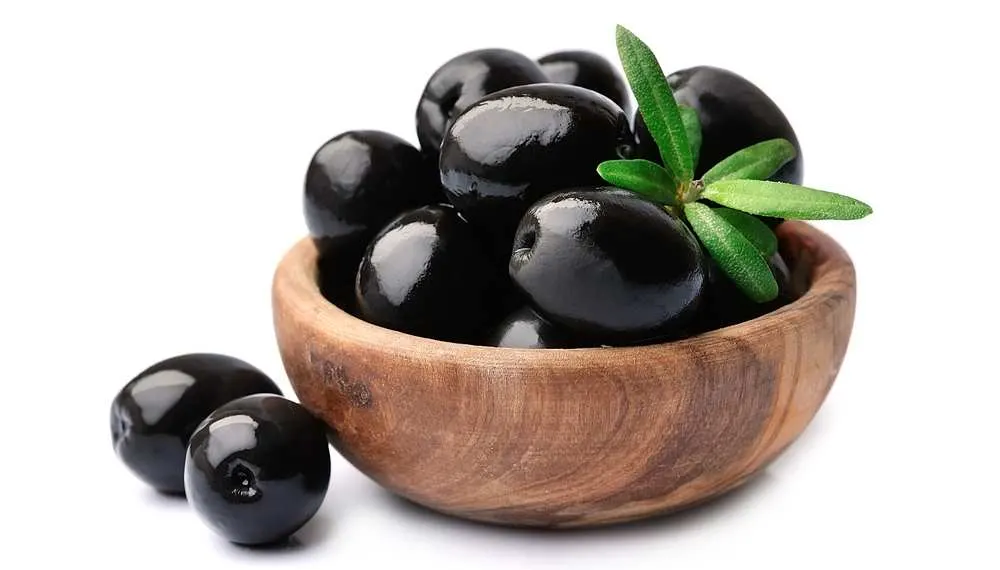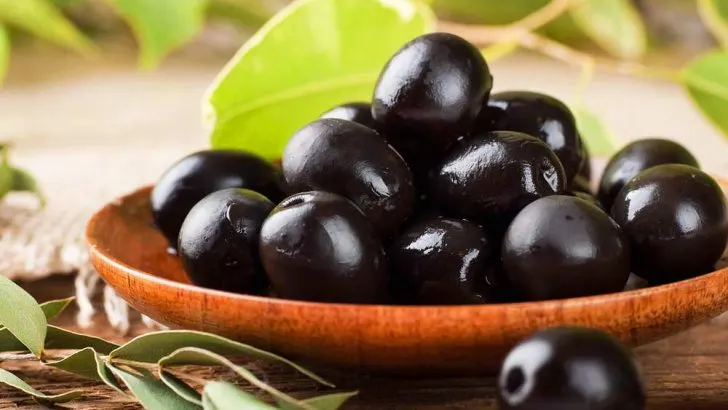When it comes to us humans, we either love or hate the olives. If you fall into the “love it” category; and have a beloved pet dog you always share your meal with, it would be good to know the answer to the question: can dogs eat black olives?
Olives are healthy for us humans – that is for sure. There are numerous health benefits that this small green fruit (yep, fruit!) brings to our tables. But what about our four-legged friends? Are olives even safe for them to eat?
We not only have all the answers ready for you but have also prepared a complete guide to all there is to know about dogs and olives.
Stay with us!

Olives Defined
Olives, or Olea Europaea, are, as we have already mentioned, a type of fruit. It might come as a surprise to you since we usually enjoy sweet and juicy fruits, and olives are neither of the two.
It does not mean that they do not taste great; it is quite the opposite. This oval-shaped fruit is famous for its delicious taste.
Olives are used all around the globe. They are an indispensable ingredient in the famous Mediterranean diet. You can enjoy them in various salads, but they are also an excellent addition to tapenade and delicious pizzas we all love so much.
The flavor is not the only asset of olives; they have high nutrient content too. Besides numerous valuable vitamins and minerals, they are also rich in antioxidant compounds and good fats. Here is the detailed list:
- Vitamin E – a powerful antioxidant good for your dog’s immune system, skin, and muscles.
- Iron – crucial for the transport of oxygen in the dog’s red blood cells.
- Copper – the essential mineral that reduces the risk of heart disease.
- Calcium – a mineral needed for your pet’s normal bone, muscle, and nerve function.
Thanks to all these valuable nutrients, olives can help you lower the level of cholesterol and control your blood pressure. In this way, this fruit plays a significant role in the prevention of cardiovascular diseases as well as some types of cancer.
As you can already see, olives are highly beneficial for you, but that is just the tip of the iceberg. Olives have numerous other benefits too. They can:
- Improve digestion
- Reduce inflammation
- Defend against infections
- Soothe allergic reactions
Where Did The Olives Originate From?
Olives are native to Asian Minor, but they have quickly spread to the Mediterranean region. It all happened about 6000 years ago. An olive tree is undoubtedly one of the oldest cultivated trees in the world.
The interesting fact is that the olive tree can live up to an impressive 1,500 years or even more. The oldest olive tree people know about is located on the island of Crete. It is believed to be more than 3,000 years old! Mind twisting, isn’t it?
Nowadays, olives are mostly produced in Spain, but Greece, Italy, and Turkey are not far behind either.
It is impossible to list all the different varieties of this green fruit since there are more than 2,000 kinds of olives grown all over the globe. The main difference we need to mention has nothing to do with the varieties – it’s between the two types of olives: green and black ones.
How Are Green And Black Olives Different?
Green olives are the ones picked from the tree before they are fully ripe. Black olives, on the other hand, were given enough time to ripen on the tree.
You cannot eat either of the two right off the tree. Raw olives have an extremely bitter taste. For this reason, once picked, olives have to go through a curing process to become edible.
How Are Black Olives Made?
Once plump and ripe, the black olives are picked from the trees and cured by being soaked in a saline solution. In this way, all the bitter elements are removed, and the olives get the pleasant taste we all enjoy so much.
Once cured, black olives are packed in a brine solution. Thanks to all this salty water involved in the production process, it would be best to soak olives in some plain water before you even consider handing them to your pet. You can find out more about that in the following section.
Now that you know so much about olives, it is time to discover whether they are poisonous for your dog or not! That’s one more reason to keep on reading!

Can Dogs Eat Black Olives?
Let’s not waste any time. The answer is YES! Your dog can occasionally enjoy an olive or two, just be careful not to overdo it! Luckily, good old olives are not toxic for our canine friends, but you still need to be very cautious.
First off, you need to consider the high amount of sodium usually present in store-bought jars or cans of olives. It would be best to purchase plain and unsalted olives for your dog, as high sodium content is not good for our furry companions.
Of course, it would be ideal to purchase only organic olives for your beloved dog. Of course, you will have to pay more, but you really should not be thrifty when it comes to your pet’s health.
The second thing you need to remember, regardless of what variety or type of olives you give to your pet, is: NEVER give more than just a couple of olives at a time! Moderation is the key to a well-balanced diet no matter what fruit or veggie you feed your dog to.
Dogs are carnivorous animals that have grown to enjoy an omnivorous diet. It is most likely the consequence of leaving so close to us people. Still, your dog’s diet should remain predominantly based on animal products. Too much fruit, veggies, and plants in your dog’s daily diet can cause digestion problems, diarrhea, and vomiting. You do not want your pooch to go through that, don’t you?
There is one additional consideration when feeding green or black olives to your pet. You should always make sure the pit is completely removed since it can damage your dog’s teeth or cause digestive issues. It is a choking hazard, as well.
It is not highly likely that your dog will have an allergic reaction to olives. Nevertheless, it would be best if you always were careful when introducing new food to your dog. It is best to start slowly. First, give your dog a small piece of olive and observe him or her to see if there will be any adverse reactions. Gradually increase the “dosage” until you are 100% sure your dog is not at any risk.
Can Olives Be Bad For Dogs?
Unfortunately, the answer is yes. We have already warned you about it, but it is better to be safe than sorry, so here are the warnings you need to remember listed in one place:
- If dogs consume too many olives, they can experience digestive issues, diarrhea, and vomiting.
- If canines ingest the pit, they are likely to suffer from upset stomach or stomach pain; they can choke on it too.
- If you feed your dog with pickled and canned olives, the high sodium content can quickly dehydrate him or her. Consuming high amounts of sodium for a long time significantly increases the risk of high blood pressure.
- Unless you have an olive tree in your backyard and produce black olives by yourself, you will likely buy them at your local store. Store-bought olives, be they green or black, contain seasonings and additives that can be harmful to dogs. That is one more reason to abide by the rule that you should give olives moderately and occasionally.
- If you know that your beloved furry friend has accidentally eaten a significant amount of olives, it would be best to consult your veterinarian as soon as possible.
- Stuffed olives are potentially dangerous to your dog, too, since they can be filled with ingredients that are not suitable for canines. The things you should avoid on the ingredients list are:
- Anchovies
- Blue cheese
- Feta cheese
- Hot peppers

The Bottom Line
Olives are not toxic for dogs, and it is thus safe to feed your pet black olives from time to time. Black olives make a healthy snack or treat but only if given in moderation. If you overdo it, your dog can end up with an upset stomach or diarrhea.
It is best to get plain ripe black olives. It is even better if you soak them in fresh water before giving them to your dog.
Learn More: What Can Dogs Eat? A Comprehensive List Of Dog-safe Foods

